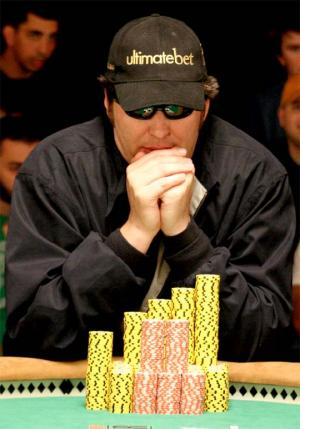This website uses cookies so that we can provide you with the best user experience possible. Cookie information is stored in your browser and performs functions such as recognising you when you return to our website and helping our team to understand which sections of the website you find most interesting and useful.
Float Play
Float Play in Texas Holdem
The definition of float play is calling a raise with nothing, in the hopes of catching a hand or bluffing our opponent on a later street to take down the pot. I think it’s fair to say that in the modern world of poker float play is becoming steadily important. With the number of LAGs in cash games these days, it becomes necessary to start hitting back and defending yourself from such aggression.
Types of Opponents to Float Play Against
 Float play is optimal against loose-agressive players who have a high cbet%. These guys need their ears clipped and you have to stop them stealing chips all of the time. Bear in mind that most of the time your opponent will have missed the flop, he’ll catch something less than 40% of the time. The higher up the stakes you go, the more common cbetting becomes. LAGs are the most profitable to float against because they’re usually leading out with nothing and are easy to force off hands in later streets.
Float play is optimal against loose-agressive players who have a high cbet%. These guys need their ears clipped and you have to stop them stealing chips all of the time. Bear in mind that most of the time your opponent will have missed the flop, he’ll catch something less than 40% of the time. The higher up the stakes you go, the more common cbetting becomes. LAGs are the most profitable to float against because they’re usually leading out with nothing and are easy to force off hands in later streets.
For example, a typical LAG with a VPIP% of 25% will call from LP with 5h-6d and cbet most random boards 7h-Kd-Js. Even if you having nothing (3h-8d), you can call his bet and bluff him off the next street where the pot becomes more valuable. The difference between re-raising here and floating, is that in the “float” you’re actually hoping to catch something rather than just make your opponent fold straight away. A float involves telling a story, and building an image throughout the hand, that says “I have something here.”
Another tip is that floating works best in heads up pots. Just like the continuation bet, you’re basically playing on the fact that your opponent has nothing and is bluffing a lot. With multiple opponents in the pot however, you can’t profitably float because the chances of someone beating you or having something better is higher.
When the Board is Checked to You
So you called his 25% cbet, hit mid-pair on the turn with a flush draw, and he checked to you on the turn. What do you do? Most people in this situation will wrongly check the board and hope to catch their flush, securing the pot. I can think of a number of problems with this play. Firstly, by checking the turn your opponent is clearly betting with garbage and doesn’t have a hand to call with. Even though you only have mid-pair your equity in the pot is much bigger than his at the moment. You should bet this pot now and force him to fold rather than take a chance at letting him catch up with a free card. For all we know, he could have mid-pair too with a better kicker – and have us beat. By taking the initiative in the hand though we put ourselves ahead.
The second problem with checking here is that we’re not going to get any value from the river. By this stage our opponent’s only going to call us with a hand that beats us at showdown, and he’s folding any hands we beat. Hence, there isn’t an opportunity to bet for value on the river given our previous float.
Floating in Position
One of the fundamental features of floating is that it can only be done from position. You need relative position on your opponent to be able to take advantage of him on later streets. If you float an agro’s cbet, you need to see what he will do on the next street and put pressure on him. Once he checks and shows weakness, then you can pounce on him and steal the pot. By floating a raise out of position, you’ll have to act first on the turn or river, which involves raising the pot blind or having to fold to a big raise after checking.
Limits of Float Play
Ofcourse float play has limits because whether you are semi-floating or whatever, it is intended to defend yourself against super aggressive players betting with air – not win you posts on your own. Furthermore, you need to be careful who you’re floating. Aggressive players who adapt quickly in heads up play will realise that you’re calling all their cbets light, so they’ll begin check-raising you with premium hands either on the turn or river.







